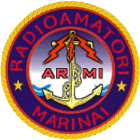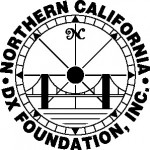In the US, there are three license levels, or “license classes” which are Technician class, General class and Extra Class. The Federal Communications Commission (FCC) grants these licenses. With only 3 License Classes, getting started in ham radio has never been easier!
LEVEL 1: Technician Class License
EXAM REQUIREMENT: 35-question Technician Written Exam (Element 2); No Morse Code Exam
PRIVILEGES: All VHF/UHF amateur bands (frequencies above 30 MHz). Limited operations in certain HF bands.
LICENSE STUDY MATERIALS The most popular license for beginners is the Technician Class license, which requires only a 35 question multiple-choice written examination. The test is written with the beginner in mind. The exam covers basic regulations, operating practices, and electronics theory, with a focus on VHF and UHF applications. Morse Code is not required for this license. With a Technician Class license, you will have all ham radio privileges above 30 megahertz (MHz). These privileges include the very popular 2-meter band. Many Technician licensees enjoy using small (2 meter) hand-held radios to stay in touch with other hams in their area. Technicians may operate FM voice, digital packet (computers), television, single-sideband voice and several other interesting modes. You can even make international radio contacts via satellites, using relatively simple station equipment. Technician licensees now also have additional privileges on certain HF frequencies. Technicians may also operate on the 80, 40, and 15 meter bands using CW, and on the 10 meter band using CW, voice, and digital modes.
LEVEL 2: General Class License (upgrade from Technician)
EXAM REQUIREMENTS: 35-question General Written Exam (Element 3); No Morse Code Exam
PRIVILEGES: All VHF/UHF amateur bands and most HF privileges (10 through 160 meters).
LICENSE STUDY MATERIALS Technicians may upgrade to General Class by passing a 35-question multiple-choice written examination. The written exam covers intermediate regulations, operating practices, and electronics theory, with a focus on HF applications. Non-licensed individuals must pass Element 2 and Element 3 Written Exams to earn a General License. The FCC grants exam element 3 credit to individuals that previously held certain older types of licenses. Valid Forms of Examination Element Credit can be found on the Web.
The General Class is a giant step up in operating privileges. The high-power HF privileges granted to General licensees allow for cross-country and worldwide communication. Some people prefer to earn the General Class license as their first ticket, so they may operate on HF right away. In addition to the Technician privileges, General Class operators are authorized to operate on any frequency in the 160, 30, 17, 12, and 10 meter bands. They may also use significant segments of the 80, 40, 20, and 15 meter bands.
LEVEL 3: Extra Class License (upgrade from General)
EXAM REQUIREMENT: 50-question Extra Written Exam (Element 4); No Morse Code Exam.
PRIVILEGES: All amateur privileges.
LICENSE STUDY MATERIALS General licensees may upgrade to Extra Class by passing a 50-question multiple-choice examination. No Morse code test is required. In addition to some of the more obscure regulations, the test covers specialized operating practices, advanced electronics theory, and radio equipment design. Frankly, the test is very difficult, but others have passed it, and you can too. Non-licensed individuals must pass Element 2, Element 3 and Element 4 Written Exams to earn an Extra License. The FCC grants exam element 3 credit to individuals that previously held certain older types of licenses. Valid Forms of Examination Element Credit can be found on the Web.
The HF bands can be awfully crowded, particularly at the top of the solar cycle. Once one earns HF privileges, one may quickly yearn for more room. The Extra Class license is the answer. Extra Class licensees are authorized to operate on all frequencies allocated to the Amateur Service.




Follow Me!
I am user of this Social Network